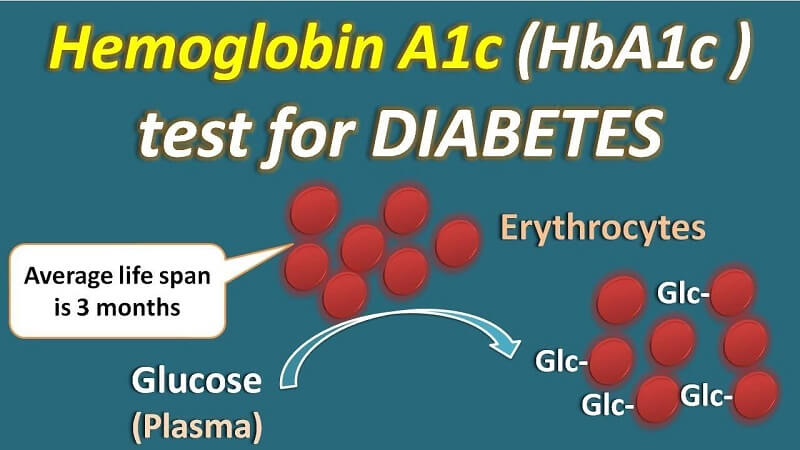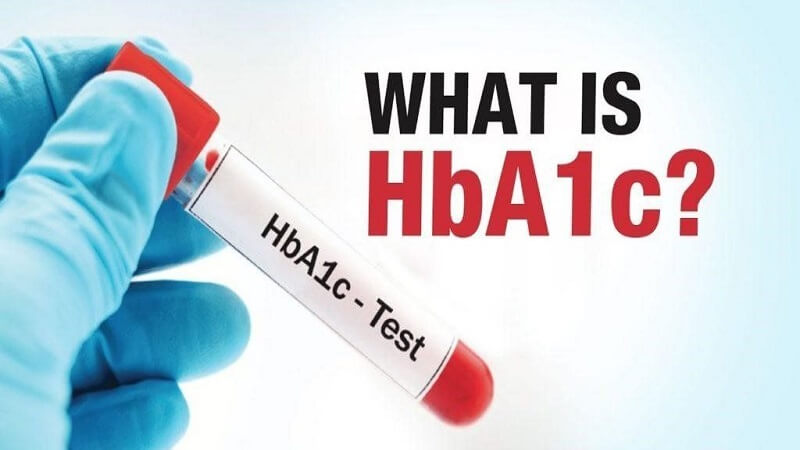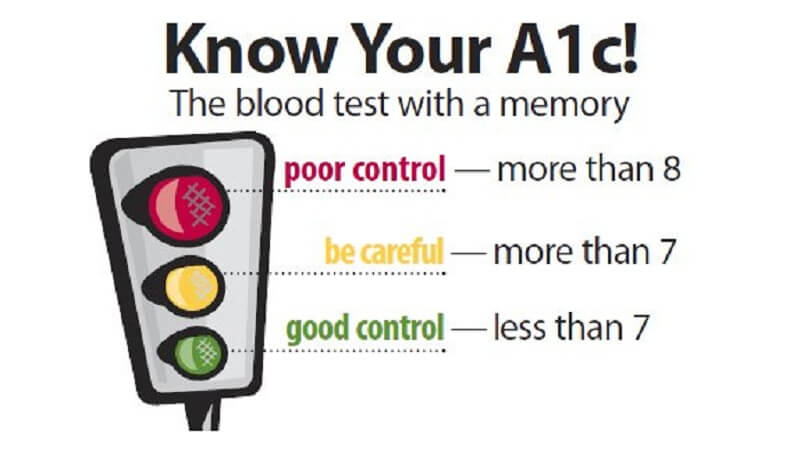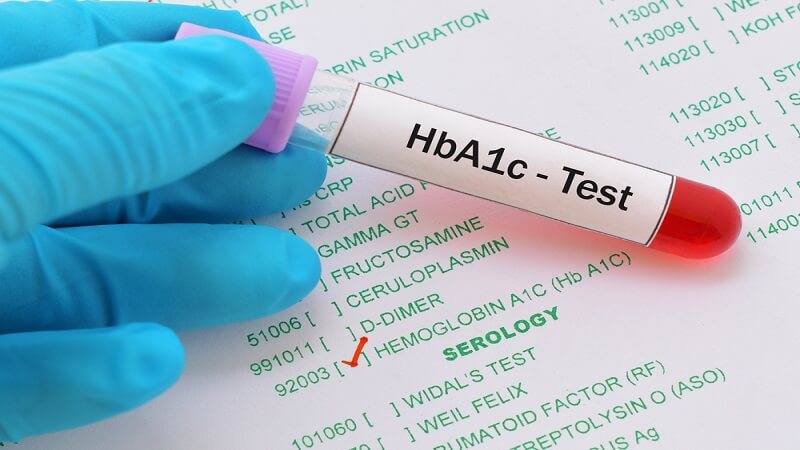When the sugar level in the blood is high, there are no physical symptoms seen in the beginning. Although, the high sugar levels have already done quite some damage to the internal organs. Sugar is considered to be one of the most addictive drugs, and it is very important to keep your sugar levels in check. To keep a regular check on your sugar levels, a test called glycosylated hemoglobin test is done.
What Is Glycosylated Hemoglobin?

Glycosylated hemoglobin is chemically linked to sugar and is a form of hemoglobin. Glucose, fructose, and galactose are prone to bond with hemoglobin, but since glucose is a primary fuel for the metabolism in humans, fructose and galactose bond with hemoglobin faster.
What Is A Glycosylated Hemoglobin Test?

A glycosylated hemoglobin test (A1c), also known as HbA1c, is used to measure the sugar level in the blood. It is mainly used to check for diabetes and determine how many months have the person been suffering from it. It precisely measures the amount of glucose in the blood.
This glucose gets stuck to the hemoglobin in your blood that causes health issues. The more the amount of glucose, the more the glucose will be stuck to the hemoglobin. This test helps find out the amount of glucose attracted to the hemoglobin and for how long.
Usually, as mentioned above, diabetes does not show any significant symptoms when the body is first struck with this disease. Therefore, there are certain conditions when your doctor advises you to get an A1c test done.
The following symptoms are:
- When your vision becomes blurry and cloudy
- If you start feeling tired and lazy very often
- When you become unproductive and pessimistic
- If your urination process becomes abnormally very often
- When you feel thirsty at all times
Many times, there are certain properties and underlying features that can tell if you are at risk for diabetes. At such times also you are asked to get a test done.
Such underlying symptoms are:
- If you are dealing with obesity issues
- If diabetes runs in your family. You can get this condition due to heredity.
- If you are facing any heart issues.
- If you have a high blood pressure
- If you do not exercise and keep yourself, fit
- This condition is also very common in older people.
Getting tested when your doctor advises you to do so is necessary so that you can start taking proper care of yourself if you have diabetes or if you are at a higher risk of being diagnosed with this serious lifestyle disease.
The basic information about the percentage of sugar in your blood that you should know after getting tested to understand whether or not you have diabetes are:
- If the results say less than 5.7%, it means you have no signs of diabetes, and your sugar level is normal.
- A result from 5.8% to 6.4% indicates that the person is prone to develop this condition if proper measures are not taken. This signals pre-diabetes.
- 6.5% or higher means that the person has this condition and diabetes is diagnosed.
A glycosylated hemoglobin test is required to keep a regular check on your health and make sure you do not find out about your condition too late. These are many measures you can take after knowing that you are suffering from diabetes.
The Reason Why This Test Is Considered To Be So Helpful Is That:

- This test shows results that are calculated based on the last 2 months before taking the test.
- This test gives the patient a heads-up so that they can take the necessary precautionary measures to prevent any damage caused to their body due to this condition.
- This test allows the patients to regularly check their sugar level to maintain their diet and other daily habits. In addition, it prevents any sudden complications from occurring in the body as you can regularly keep track of your glucose levels.
- There are no prior requirements that need to be followed before getting a glycosylated hemoglobin test done. In addition, no physical or emotional fluctuations affect the results of this test.
Which Factors Might Affect The Accuracy Of This Test?

- Any blood deficiency such as iron and vitamin B12 that causes anemia can show a false reading of your sugar levels.
- Any disease or condition related to your kidney can also affect the results.
- Very high-fat levels present in your blood levels, called triglycerides, can make your glucose levels seem higher than actual.
A glycosylated hemoglobin test is very important and efficient if you wish to keep a regular check on your sugar levels. Diabetes is a disease that nobody would want to have since the measures and restrictions that come with this condition are major. So make sure you take proper care of yourself and stay healthy.
Follow Us: Facebook | Instagram | Twitter |
Entertales is on YouTube; click here to subscribe for the latest videos and updates.














